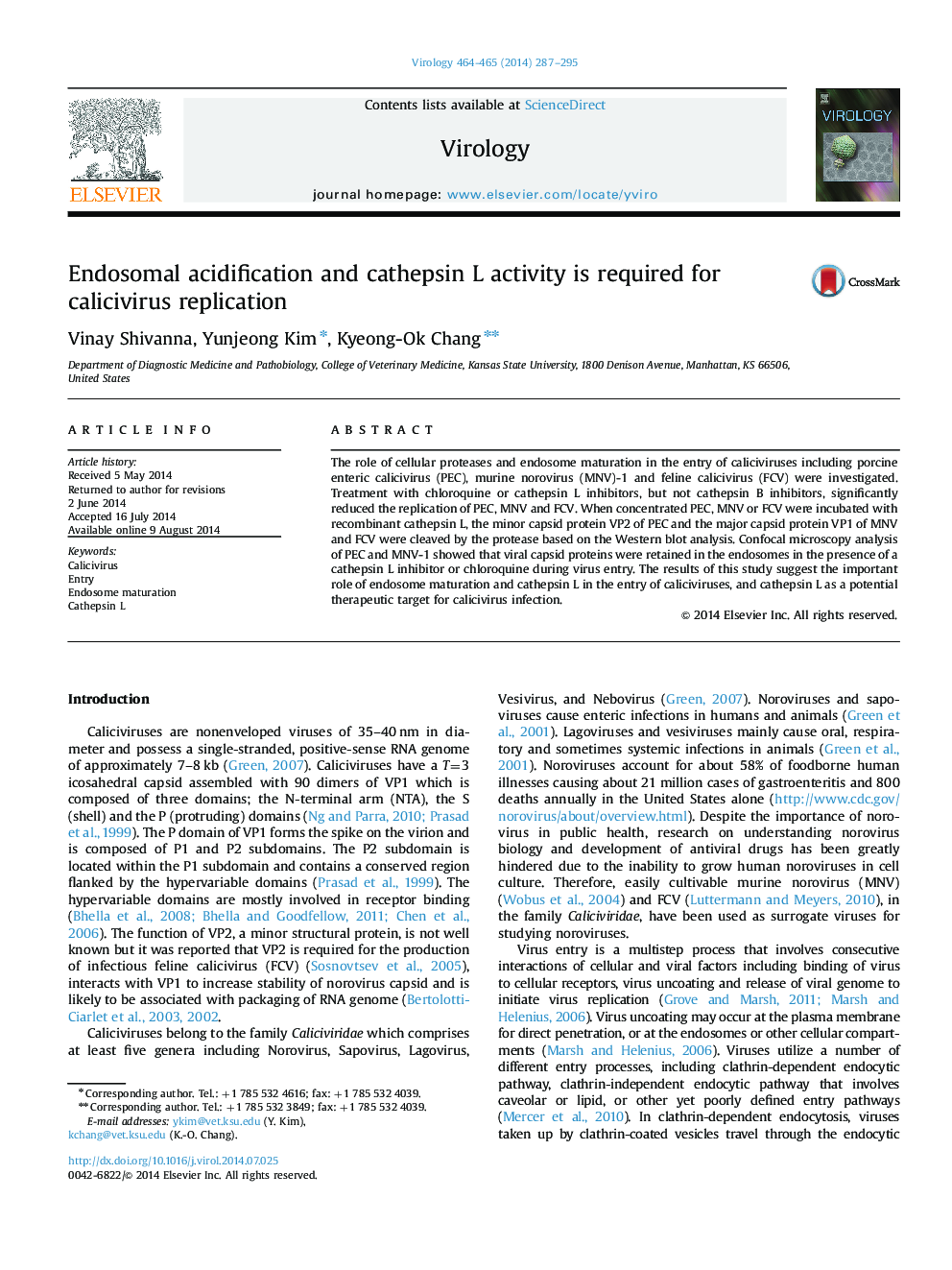| Article ID | Journal | Published Year | Pages | File Type |
|---|---|---|---|---|
| 6140069 | Virology | 2014 | 9 Pages |
â¢Endosome maturation and/or cathepsin L are important in the replication of caliciviruses.â¢Inhibition of endosome maturation blocked viral entry by retaining viruses in the endosomes.â¢Cathepsin L facilitates the viral escape from endosome by cleaving calicivirus capsid protein.
The role of cellular proteases and endosome maturation in the entry of caliciviruses including porcine enteric calicivirus (PEC), murine norovirus (MNV)-1 and feline calicivirus (FCV) were investigated. Treatment with chloroquine or cathepsin L inhibitors, but not cathepsin B inhibitors, significantly reduced the replication of PEC, MNV and FCV. When concentrated PEC, MNV or FCV were incubated with recombinant cathepsin L, the minor capsid protein VP2 of PEC and the major capsid protein VP1 of MNV and FCV were cleaved by the protease based on the Western blot analysis. Confocal microscopy analysis of PEC and MNV-1 showed that viral capsid proteins were retained in the endosomes in the presence of a cathepsin L inhibitor or chloroquine during virus entry. The results of this study suggest the important role of endosome maturation and cathepsin L in the entry of caliciviruses, and cathepsin L as a potential therapeutic target for calicivirus infection.
